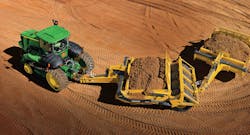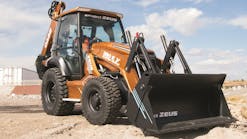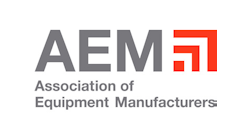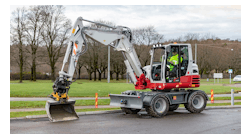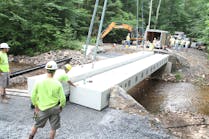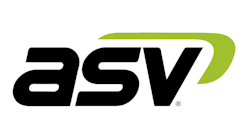They say ignorance of the law is no excuse. That being the case, I think this may come in handy for all of you heavy equipment owners and operators out there who are smart enough to mess around with the software on your iron. There are two sides to this, so make sure to read through to the end of the blog.
I became aware of this issue when I heard a radio story on NPR about a farmer in San Luis Obispo (which locals pronounce San “Lewis” Obispo), which is in my own backyard of the central coast of California. The farmer, Dave Alford, likes to fix things himself. That includes his John Deere 8520T tractor. But fixing his tractor may include tinkering with the machine’s embedded software—which happens to be illegal.
Here is the text story from NPR’s website:
DIY Tractor Repair Runs Afoul Of Copyright Law
The iconic image of the American farmer is the man or woman who works the land, milks cows and is self-reliant enough to fix the tractor. But like a lot of mechanical items, tractors are increasingly run by computer software. Now, farmers are hitting up against an obscure provision of copyright law that makes it illegal to repair machinery run by software.
Take Dave Alford. He fits that image of the iconic farmer.
“I do farming on the family ranch,” says Alford, standing on a piece of grassy earth with a white barn behind him. “I’ve been farming for the past 30 years and obviously my family much before that.”
Alford wears a blue baseball cap with a farm supply company logo across the top, a plaid shirt, blue jeans and work boots. As Alford and I walk over to see one of his newer tractors we pass what looks like a graveyard of rusty old ones.
Alford says he keeps the old ones around, “Just because I’m a farmer. You keep thinking, well, maybe I’ll make this one work someday.”
Alford considers himself a small farmer — he’s got 1,000 acres in San Luis Obispo along the central coast of California where he grows snow peas, garbanzo beans, hay and seed crops. But he jokes that he tells his friends he’s a mechanic.
“You spend so much of your time in agriculture fixing things,” Alford says. “I’m of a size that it’s more economically beneficial to me to fix as much stuff as I can myself.”
But that’s been getting a lot harder to do.
Alford and I sit in the air conditioned enclosed cabin of his John Deere 8520T tractor. In the cabin are little computer screens that monitor the engine.
“So I can monitor, for example, what my hydraulics are doing that’s running the implement behind me,” Alford says. “I can monitor the regular standard things in an engine.”
And the little computer screen lets him know when something is wrong. Unfortunately, Alford isn’t allowed to fix it. John Deere has a digital lock on the software that runs his tractor. And it won’t give him the key.
If something goes wrong with one of his tractors Alford has to take it to an authorized John Deere dealer — the closest one is about 40 miles away — or a John Deere rep has to come visit him. Alford had an issue about a year ago; the tractor belts were loose. He waited a day for the John Deere rep.
“The tech came out and it took him a couple hours to diagnose that there was one small sensor out. And that one small sensor, I think it was a $120 part.”
The problem with this setup is that in farming timing is everything. When the soil is soft enough to till you have to go; when the crop is ripe you have to pick it.
“So if you have a small problem that does not allow your tractor to operate and you have downtime it’s costing you money and a lot of stress,” he says.
You may wonder why Alford doesn’t just break that digital lock and get into the software and fix the problems himself. He could, but he’d be breaking the law. It’s called the Digital Millennium Copyright Act of 1998, or DMCA. It was written because movie studios were worried that people would break the digital locks on DVDs, make copies and pirate them.
“And now we have this situation where there’s digital locks on all kinds of things,” says Kyle Wiens, co-founder of iFixit, which helps people repair their own technology. “There’s digital locks on your garage door opener and if you want to circumvent that, if you want to use an aftermarket garage door opener that wasn’t made by your garage door manufacturer, you might be violating copyright law.”
And you can add to this list. It is illegal to break the digital locks on medical devices, such as a pacemaker, as well as game consoles and cars — pretty much anything you purchase that runs with software. If you break the digital lock you can face five years in prison and/or a half a million dollars in fines. Though we haven’t heard of that happening to a farmer.
The law provides that every three years the Library of Congress’ copyright office can review the law and make exemptions. Farm groups, mechanics, security researchers, consumer advocates are all in the midst of fighting for several exceptions.
Automakers, John Deere and other makers of construction equipment are opposed. John Deere would not talk on tape, but in an emailed statement the company said ownership does not include the right to modify computer code embedded in that equipment. The company went on to say that unqualified individuals could endanger customer safety.
Ryan Talley, another farmer in San Luis Obispo, says he understands safety concerns. But he thinks the manufacturers should work with the farmers.
“I do feel just philosophically when you purchase a tractor, you own the tractor,” he says. “And I firmly believe that these tractor companies need to make it so that their clients or their customers can repair their tractors if they so decide to do so.”
The copyright office is deliberating whether Talley, Alford and other farmers can have the right to fix their tractors. They’ll decide by October. And if they grant the exemption it will only last for three years. Then, the farmers argue for it all over again. Unless Congress changes the law.
I reached out to our own contacts at John Deere. A spokesperson supplied me with comments on the company’s opposition to a revision of the Digital Millennium Copyright Act. I feel it’s imperative to include the entirety of John Deere’s statement:
John Deere customers most definitely own the equipment they purchase. This is similar to buying a car, consumer electronics, or any other type of equipment that uses embedded software to provided advanced features. Just as with autos and other equipment, the customer does purchase and own a John Deere product but that purchase does not include the right to copy, modify or distribute the computer code that is embedded in that equipment.
The embedded software is designed to ensure the product’s performance in several essential areas. Safety is one of the most important areas to discuss regarding our desire to protect the copyright of our software. If an unqualified individual were to hack into, or modify that software, the product may no longer comply with safety standards and could endanger the safety of operators, dealership technicians and others. Those who work with and maintain heavy machinery could be severely injured or killed if the machine does not react as they expect it to because someone has modified its embedded computer code. Another important concern is environmental regulation. Changing the computer code could make a machine not comply with emission standards. In addition, other key performance factors such as fuel consumption could suffer.
The intelligence of machinery today delivers features that add to the productivity and profitability of the owners and operators of that machinery. These features are delivered through the use of embedded computer code, code which John Deere has developed and invested in on behalf of its customers. Allowing unauthorized access to this code would provide the means to others to steal the intellectual property developed by Deere for its customers and therefore would have a detrimental effect on the willingness of Deere and other companies to invest in future advancements in product performance.
To listen to the NPR story, click here.
For more information on the Digital Millennium Copyright Act, click here.
What do you think? Should owners of heavy equipment have the keys that unlock embedded computer software? Or should those codes remain the intellectual property of the manufacturers?

